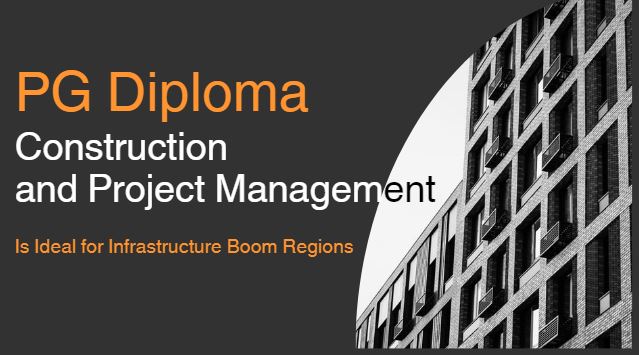
Construction project management (CPM) involves the planning, execution, and control of building or infrastructure projects. This all-encompassing management approach ensures projects are completed on time, within budget, and to the desired quality standards.
In today’s industry, construction management is a crucial driver of success and profitability. It integrates strategic planning and robust technology—such as construction site management software and Building Information Modelling (BIM)—to manage timelines, costs, and quality.
Key Responsibilities in Construction Project Management
- Coordination with clients and stakeholders
- Multilevel planning of construction phases
- Estimation and budgeting
- Obtaining necessary permits
- Subcontractor management
- Construction monitoring and control
- Final acceptance and project handover

Modern Challenges in Construction Project Management
Even the most well-planned construction management projects face challenges that can derail timelines and inflate costs. The “magic triangle” of scope, time, and cost captures the core of these challenges:
- Scope: Large-scale projects involve many stakeholders, making communication and coordination complex.
- Time: External factors like bureaucracy, weather, and political instability cause delays.
- Cost: Rising material and labour costs demand stringent budget oversight.
Effective construction project management requires structured processes and professional oversight to navigate these challenges while maintaining profitability.
Phases of Construction Management
1. Planning and Design
This phase lays the foundation for success:
- Define project objectives and scope
- Create detailed blueprints and specifications
- Plan timelines and milestones using construction scheduling techniques
- Conduct cost estimation and budgeting
Smart planning mitigates risks like resource misallocation, poor coordination, and inaccurate deadlines. For instance, in highway projects, architects, engineers, and regulatory authorities collaborate early to align on expectations.
2. Execution and Control
Here, the plans materialize. Key tasks include:
- Construction kick-off
- Resource optimization
- Team communication and issue resolution
- Quality checks through RFIs
Use of construction project management software at this stage helps centralize information and track progress, improving transparency and construction workflow management.
3. Project Completion
Final steps in the construction management process:
- Conduct inspections
- Prepare documentation
- Handover the completed project to the client

Methods of Managing Construction Projects
1. Agile Methods
Agile in construction project management supports flexibility:
- Iterative development and frequent feedback loops
- Rapid response to design or scope changes
- Enhanced collaboration among stakeholders
Agile is well-suited for innovation-driven projects like design labs or modular structures.
2. Lean Construction
The lean method aims to reduce waste and improve efficiency. It uses:
- Last Planner System (LPS)
- Cycle-based planning for smooth workflows
- Target Value Design (TVD) for budget-aligned outcomes
Lean principles align well with construction operations management where efficiency is paramount.
3. Traditional (Waterfall) Method
The waterfall model offers structured phases with minimal flexibility:
- Clear deliverables before starting
- Step-by-step execution
- Reliable for projects with well-defined goals
Despite its rigidity, it ensures control over cost and timelines, making it ideal for programs for construction management with fixed objectives.
Roles & Responsibilities in Construction Management
A construction project manager typically oversees:
- Budget estimation and control
- Approvals and design reviews
- Client and vendor communication
- Day-to-day construction operations
- Planning schedules using building project management tools
- Coordination with architects and engineers
- Ensuring regulatory compliance
Training through construction project manager training is essential to master these responsibilities efficiently.
Types of Construction Projects
Construction projects are broadly categorized into six types:
- Residential – Homes, apartments, renovations
- Commercial – Offices, retail outlets, hotels
- Institutional – Schools, hospitals, government buildings
- Industrial – Factories, warehouses
- Infrastructure – Roads, bridges, transport networks
- Heavy Civil Engineering – Airports, dams
Each requires specialized knowledge and tools for effective construction project management.

Upgrade Your Career with MITSDE’s Diploma of Construction Management
MITSDE offers an industry-aligned construction project management course in collaboration with KPMG. This 24-month online construction management course is priced at ₹90,000 and is ideal for both aspiring and experienced managers.
Key Benefits:
- Learn the latest techniques in construction management
- Gain global perspectives in construction project management
- Master topics like cost control, safety, and logistics
- Develop planning, execution, and communication skills
- Access practical tools like construction scheduling techniques and construction site management software
This course is also available through online construction management classes, making it easy for working professionals to learn without taking a career break.
Final Thoughts
Whether you’re aiming for a construction management master degree, a specialized diploma of construction management, or looking for online construction management classes, acquiring the right skills is the first step toward project success.
Invest in your future with MITSDE’s comprehensive construction project management course. Equip yourself with the right methods of managing construction projects, tools, and leadership training to thrive in this dynamic field.



